Are you a safe pair of hands or an accident waiting to happen? Take this short quiz to find out.
How often should you replace your smoke alarm?
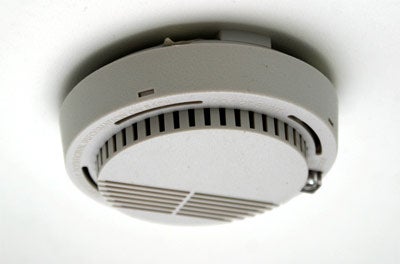
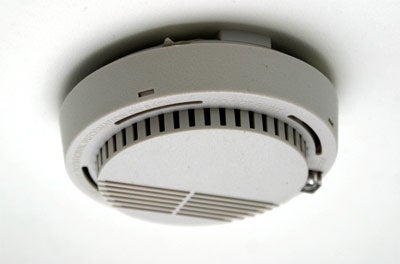
You should replace your smoke alarm every ten years. Test your alarms regularly – about once a month – and keep them clean. If your alarms are battery powered, you should replace the battery every year unless it’s a 10-year sealed battery.
Contact your local fire service to find out if you’re able to get a free Safe and Well visit. They may fit smoke alarms for you and test any that you have.
You should replace your smoke alarm every ten years. Test your alarms regularly – about once a month – and keep them clean. If your alarms are battery powered, you should replace the battery every year unless it’s a 10-year sealed battery.
Contact your local fire service to find out if you’re able to get a free Safe and Well visit. They may fit smoke alarms for you and test any that you have.
You should replace your smoke alarm every ten years. Test your alarms regularly – about once a month – and keep them clean. If your alarms are battery powered, you should replace the battery every year unless it’s a 10-year sealed battery.
Contact your local fire service to find out if you’re able to get a free Safe and Well visit. They may fit smoke alarms for you and test any that you have.
What should you do if your smoke alarm keeps going off while you’re cooking?
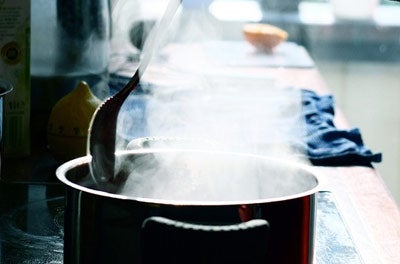

If your smoke alarm keeps going off while you’re cooking, you may need to move it or replace it with an alarm that isn’t affected by smoke, such as a heat alarm. These only cover a relatively small area so you may need more than one in a large kitchen.
Never take the batteries out.
If your smoke alarm keeps going off while you’re cooking, you may need to move it or replace it with an alarm that isn’t affected by smoke, such as a heat alarm. These only cover a relatively small area so you may need more than one in a large kitchen.
Never take the batteries out.
If your smoke alarm keeps going off while you’re cooking, you may need to move it or replace it with an alarm that isn’t affected by smoke, such as a heat alarm. These only cover a relatively small area so you may need more than one in a large kitchen.
Never take the batteries out.
Which of these appliances uses the most electricity?
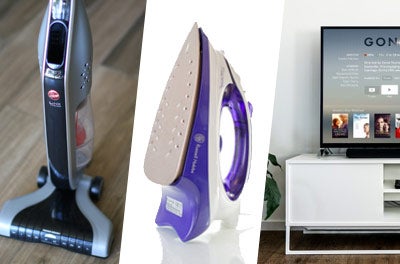

An iron uses the most electricity.
Overloading sockets is a fire risk. Most people use extension leads which let you to plug more than one appliance into a wall socket, but just because they have space for four plugs doesn’t mean you should use all of them. Appliances use different amounts of electricity and plugging in more than one could take you over the maximum load. Try the socket overload calculator online tool to make sure you’re not going over the limit.
An iron uses the most electricity.
Overloading sockets is a fire risk. Most people use extension leads which let you to plug more than one appliance into a wall socket, but just because they have space for four plugs doesn’t mean you should use all of them. Appliances use different amounts of electricity and plugging in more than one could take you over the maximum load. Try the socket overload calculator online tool to make sure you’re not going over the limit.
An iron uses the most electricity.
Overloading sockets is a fire risk. Most people use extension leads which let you to plug more than one appliance into a wall socket, but just because they have space for four plugs doesn’t mean you should use all of them. Appliances use different amounts of electricity and plugging in more than one could take you over the maximum load. Try the socket overload calculator online tool to make sure you’re not going over the limit.
What should you do if there’s a fire?
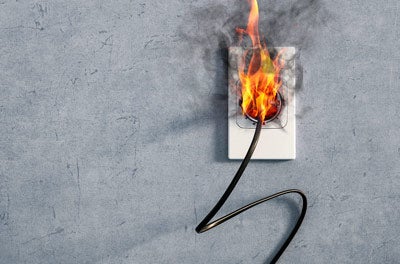

If there’s a fire, get out, stay out and call 999. Don’t try to put out a fire yourself – leave it to the fire bridgade.
If there’s a fire, get out, stay out and call 999. Don’t try to put out a fire yourself – leave it to the fire bridgade.
If there’s a fire, get out, stay out and call 999. Don’t try to put out a fire yourself – leave it to the fire brigade.
For more help with fire safety, see our Home Safety guide.
What should you never take into the bathroom?
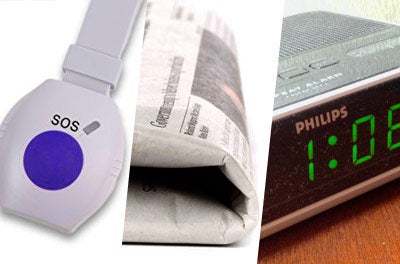

Water conducts electricity so you should never bring mains-powered appliances such as radios, heaters or hairdryers into a bathroom.
Most personal alarms are waterproof so you can take them in the bathroom. If you’re worried about falling, you could also consider making adaptations such as installing grab rails and a bath seat or electric bath lift.
Water conducts electricity so you should never bring mains-powered appliances such as radios, heaters or hairdryers into a bathroom.
Most personal alarms are waterproof so you can take them in the bathroom. If you’re worried about falling, you could also consider making adaptations such as installing grab rails and a bath seat or electric bath lift.
Water conducts electricity so you should never bring mains-powered appliances such as radios, heaters or hairdryers into a bathroom.
Most personal alarms are waterproof so you can take them in the bathroom. If you’re worried about falling, you could also consider making adaptations such as installing grab rails and a bath seat or electric bath lift.
What can carbon monoxide poisoning be mistaken for?
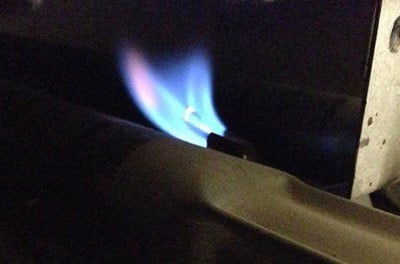

Both are right. Breathing in carbon monoxide can give you symptoms similar to a cold, flu or food poisoning. Carbon monoxide poisoning is extremely dangerous and can be fatal so don’t take any chances. You can’t see, smell or taste carbon monoxide and even a small amount can cause health problems. Get a carbon monoxide alarm to give you an early warning. You should also get your appliances serviced and tested regularly.
For more advice, see our Fire, gas, solid fuel and electrical safety webpage.
Both are right. Breathing in carbon monoxide can give you symptoms similar to a cold, flu or food poisoning. Carbon monoxide poisoning is extremely dangerous and can be fatal so don’t take any chances. You can’t see, smell or taste carbon monoxide and even a small amount can cause health problems. Get a carbon monoxide alarm to give you an early warning. You should also get your appliances serviced and tested regularly.
Both are right. Breathing in carbon monoxide can give you symptoms similar to a cold, flu or food poisoning. Carbon monoxide poisoning is extremely dangerous and can be fatal so don’t take any chances. You can’t see, smell or taste carbon monoxide and even a small amount can cause health problems. Get a carbon monoxide alarm to give you an early warning. You should also get your appliances serviced and tested regularly.
What should you do if you have a minor burn or scald?


Treat the area with cool or cold running water for about 20 minutes. First aid can help to limit damage to your skin. Never use ice, iced water, creams or greasy substances such as butter to treat a burn or scald. If the burn or scald is serious, seek medical help. See our Water safety page for more information.
Treat the area with cool or cold running water for about 20 minutes. First aid can help to limit damage to your skin. Never use ice, iced water, creams or greasy substances such as butter to treat a burn or scald. If the burn or scald is serious, seek medical help. See our Water safety page for more information.
Treat the area with cool or cold running water for about 20 minutes. First aid can help to limit damage to your skin. Never use ice, iced water, creams or greasy substances such as butter to treat a burn or scald. If the burn or scald is serious, seek medical help. See our Water safety page for more information.
With raw meat, which of the following should you NOT do?


Don’t wash raw meat before cooking it – this can spread bacteria to other food.
Always store raw meat, fish or poultry at the bottom of your fridge, below ready-to-eat food such as salad, and use a separate chopping board when preparing raw meat. See our Home Safety guide for more information on food safety.
You should always store raw meat, fish or poultry at the bottom of your fridge, below ready-to-eat food such as salad, and use a separate chopping board when preparing raw meat.
Don't wash raw meat before cooking it – this can spread bacteria to other food.
You should use a separate chopping board when preparing raw meat and always store raw meat, fish or poultry at the bottom of your fridge, below ready-to-eat food such as salad.
Don’t wash raw meat before cooking it – this can spread bacteria to other food.
What can you do to manage your medication better?


Follow the instructions and take the right amount at the right time. This might seem obvious, but according to the World Health Organisation’s 2003 report only 50% of people take their medicine as they should. If you’re taking more than one medicine and you have a long-term health condition, ask your pharmacist about a free medicines use review. Read Managing your medication for more information.
Follow the instructions and take the right amount at the right time. This might seem obvious, but according to the World Health Organisation’s 2003 report only 50% of people take their medicine as they should. If you’re taking more than one medicine and you have a long-term health condition, ask your pharmacist about a free medicines use review. Read Managing your medication for more information.
Follow the instructions and take the right amount at the right time. This might seem obvious, but according to the World Health Organisation’s 2003 report only 50% of people take their medicine as they should. If you’re taking more than one medicine and you have a long-term health condition, ask your pharmacist about a free medicines use review. Read Managing your medication for more information.
Which of the following can help prevent falls?
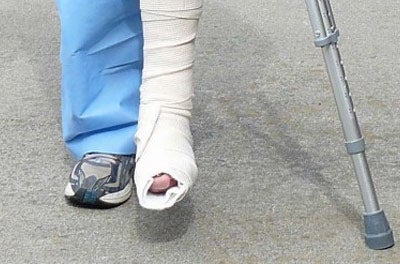

All of them are right. Keeping your feet healthy, wearing suitable footwear, regular exercise and reviewing your medication can all help prevent falls. There are also other things you can do to help you stay steady on your feet.
Falls can happen to anyone. Most don’t result in serious injury but they can affect your confidence and wellbeing. Being prepared can help you avoid falls or cope if you have one and there’s lots of help and support available.
All of them are right. Keeping your feet healthy, wearing suitable footwear, regular exercise and reviewing your medication can all help prevent falls. There are also other things you can do to help you stay steady on your feet.
Falls can happen to anyone. Most don’t result in serious injury but they can affect your confidence and wellbeing. Being prepared can help you avoid falls or cope if you have one and there’s lots of help and support available.
All of them are right. Keeping your feet healthy, wearing suitable footwear, regular exercise and reviewing your medication can all help prevent falls. There are also other things you can do to help you stay steady on your feet.
Falls can happen to anyone. Most don’t result in serious injury but they can affect your confidence and wellbeing. Being prepared can help you avoid falls or cope if you have one and there’s lots of help and support available.
You scored [quiz-number-correct] out of [quiz-number-total]
10 Expert
You know how to spot risks and prevent accidents in your home.
7-9 Professional
You’re pretty good at keeping your home safe, but don’t get complacent.
4-6 Apprentice
It’s a good start, but you’ve got more to learn.
0-3 Novice
You’ve got some brushing up to do. Take some time to read through our advice.